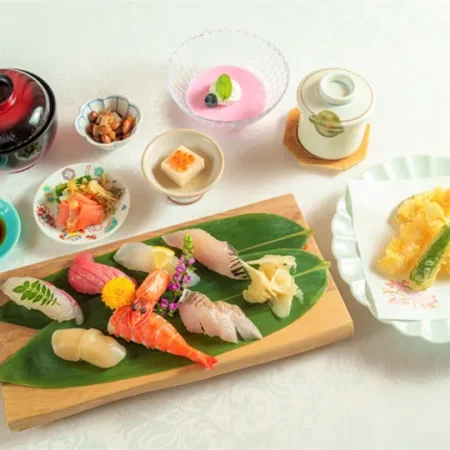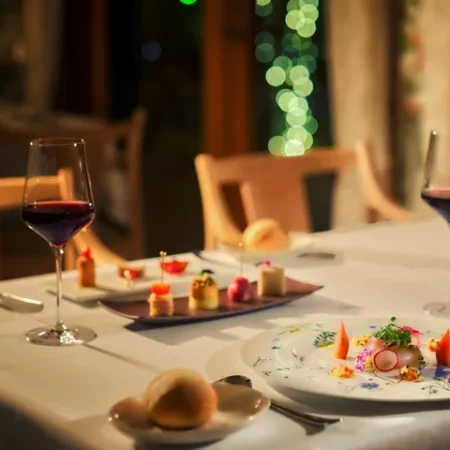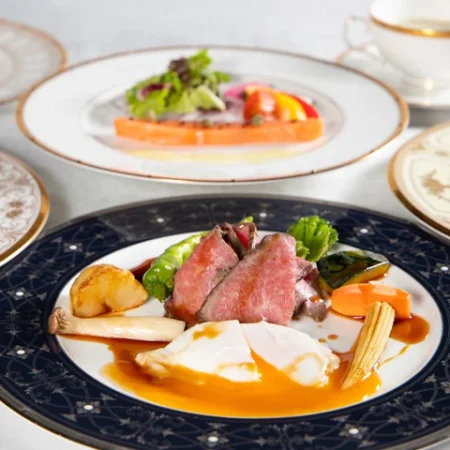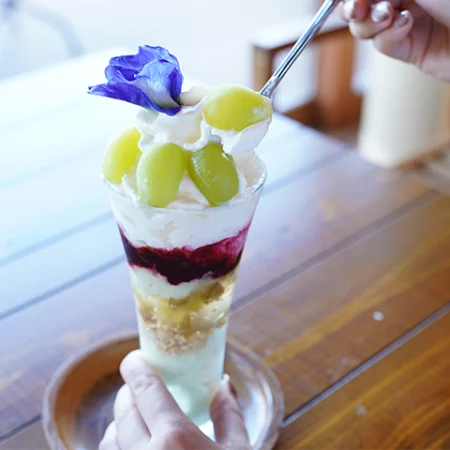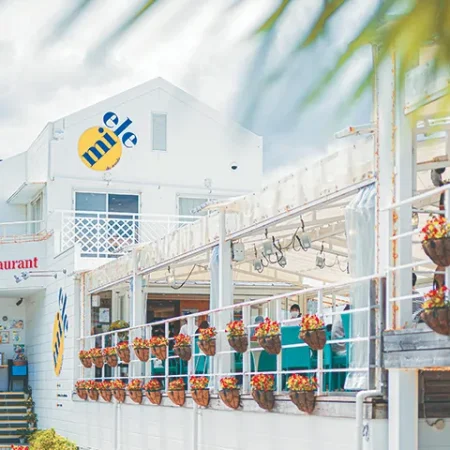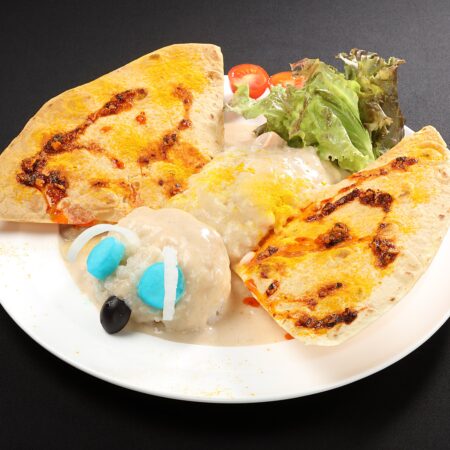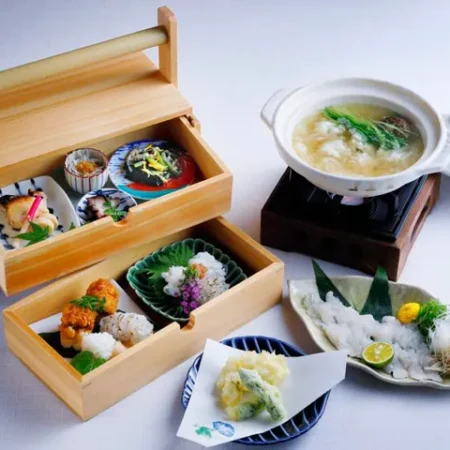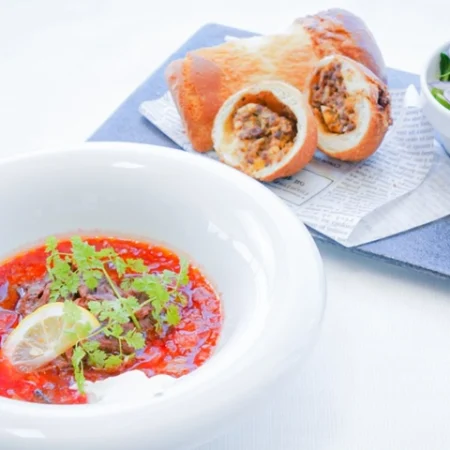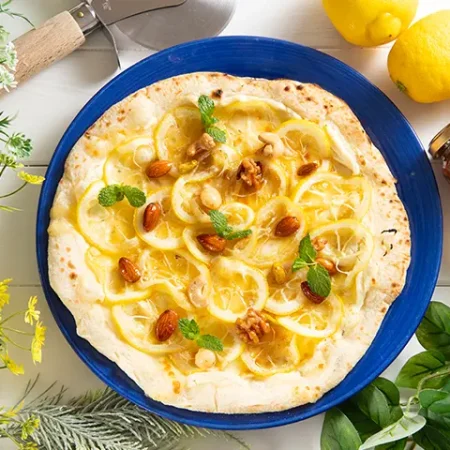In today’s fast-paced world, the quest for wellness and wellbeing has taken center stage in many people’s lives. With the constant demands of modern life, more and more individuals are seeking holistic approaches to achieve a balanced and healthier lifestyle. One such approach that has gained prominence is “Shojin Ryori”, an ancient Japanese culinary tradition rooted in Buddhist philosophy that not only nourishes the body but also nurtures the soul.
Table of Contents
Shojin Ryori: Nourishment for Body and Soul
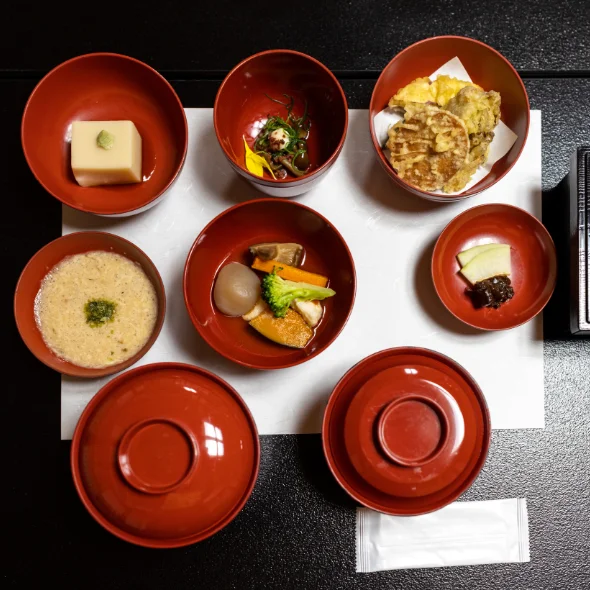
Shojin Ryori is a traditional form of Buddhist cuisine that adheres strictly to vegetarian principles, avoiding meat or fish and favoring seasonal vegetables and mountain plants. Strong flavors like garlic and onion are intentionally omitted in this culinary tradition. This cuisine has a unique ability to showcase the natural essence of its ingredients, particularly soybeans.
Buddhism and Shojin Ryori were introduced to Japan in 538, with Emperor Tenmu banning meat consumption in 675 to promote Buddhist principles. The early roots of Japanese Shojin Ryori can be traced back to the Nara and Heian periods (710-1185). However, it evolved into its current form during the early Kamakura period (1185-1333) thanks to Dogen, the founder of Soto Zen Buddhism. This dietary practice has been preserved by Buddhist priests for centuries. Still, in recent times, the allure of Shojin Ryori transcends cultural boundaries, attracting global interest for its blend of health benefits and exquisite flavors.
The benefits of Shojin Ryori
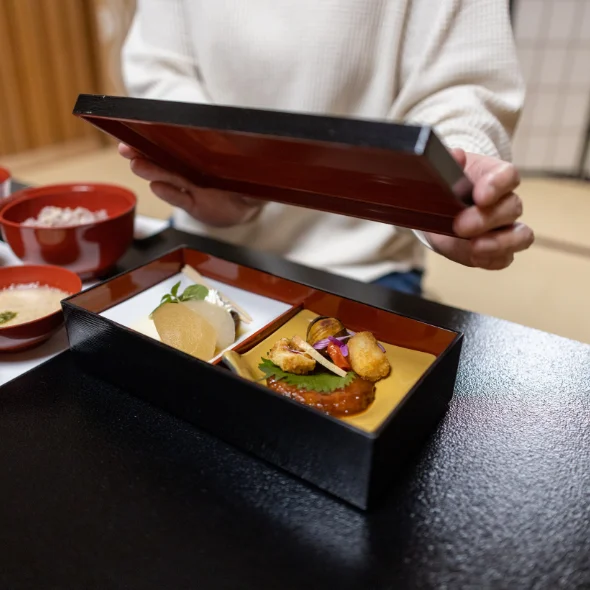
The benefits of Shojin Ryori extend far beyond the physical nourishment it provides. This unique culinary tradition emphasizes the use of fresh, seasonal ingredients, often locally sourced, to create dishes that are both visually stunning and nutritionally rich. By focusing on natural flavors and the art of presentation, Shojin Ryori offers a sensory experience that transcends an ordinary meal.
Notwithstanding its substantial character, Shojin Ryori does not induce sensations of excessive fullness or bloating. Remarkably, one need not strictly adhere to a vegetarian lifestyle to savor the culinary delights it offers. Partaking in Shojin Ryori may even cultivate a heightened appreciation for vegetables and a more plant-centric dietary inclination over time.
From a health standpoint, Shojin Ryori is renowned for its beneficial effects on the human body. It is typically low in calories and saturated fats, making it an excellent choice for those seeking to maintain or achieve a healthy weight. Moreover, the emphasis on plant-based ingredients means that Shojin Ryori is abundant in vitamins, minerals, and antioxidants, contributing to improved digestion, enhanced energy levels, and overall vitality.
Awaji Island: A Paradigm for Health and Wellbeing Development
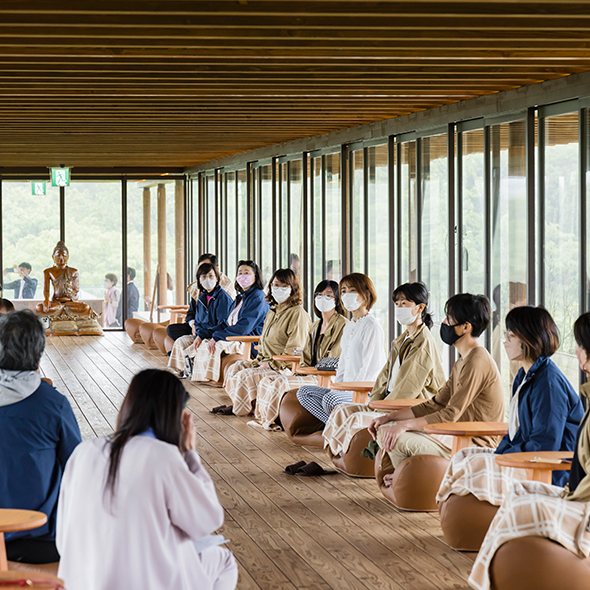
Awaji Island, situated in the eastern part of the Seto Inland Sea, is the largest island in Japan’s Inland Sea. Awaji Island has gained a reputation for its commitment to health and wellbeing. Surrounded by stunning natural beauty, Awaji Island offers an ideal setting for those seeking a respite from the pressures of urban life. Amidst a natural setting, individuals can readily disconnect from the urban hustle and immerse themselves in the serenity essential for wellbeing-related activities such as meditation and enjoying Shojin Ryori.
Zenbo Seinei: The Perfect Location for Zazen Meditation and Shojin Ryori
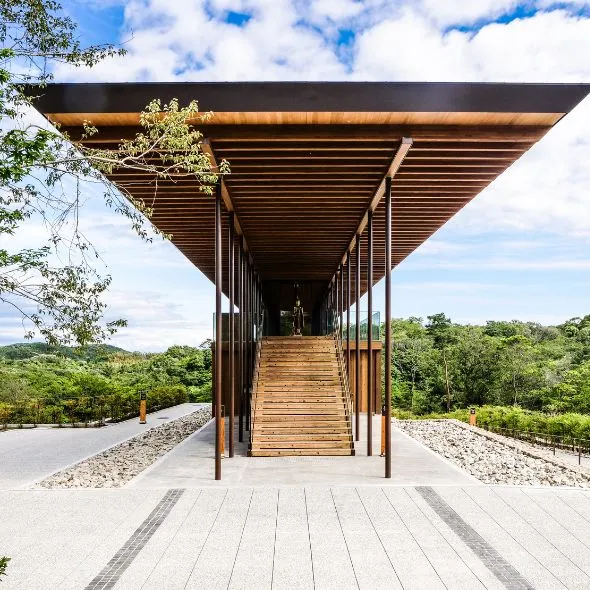
Zenbo Seinei, situated amidst the natural splendor of Awaji Island, serves as a peaceful wellness retreat masterfully designed by the renowned Japanese architect, Shigeru Ban. Zenbo Seinei represents Shigeru Ban’s pioneering and eco-conscious architectural concept, incorporating elements such as Japanese Cedar wood to mirror the beauty of simplicity. At the heart of Zenbo Seinei lies a magnificent 100-meter-long deck, a testament to its panoramic 360° views, beckoning visitors to immerse themselves in the tranquility conducive to practices like zazen meditation (seated meditation), trying Shojin Ryori, and other well-being activities while enveloped by the natural embrace of Awaji Island’s landscape.
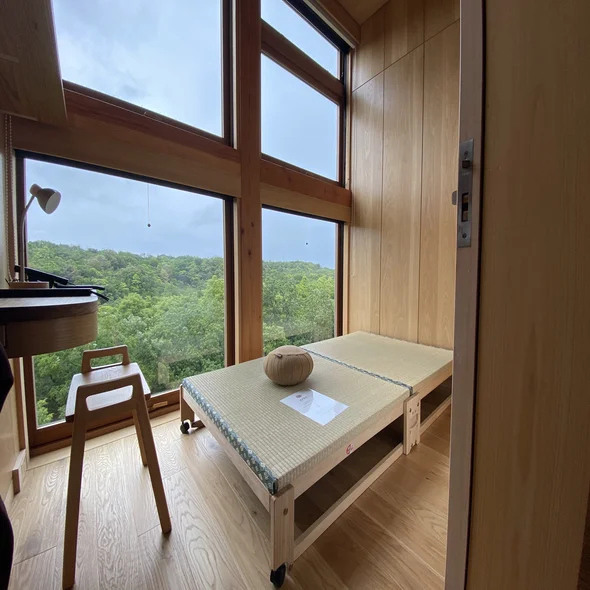
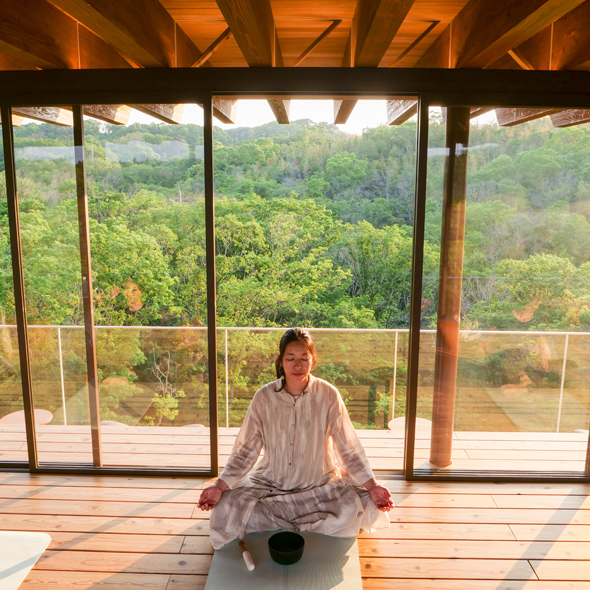
Zazen meditation provides a gateway to the realm of mindfulness, facilitating inner peace discovery. The Zen tea ceremony offers a meditative encounter, allowing participants to immerse themselves in the elegance and tradition of this Japanese ritual. Meanwhile, Zen calligraphy offers a means of self-expression and introspection through the medium of brush and ink. Additionally, the Zenbo Cuisine experience presents an opportunity to savor the essence of Awaji Island’s natural ingredients, nurturing both body and spirit through the art of Shojin Ryori.
Shojin Ryori Experience at Zenbo Seinei
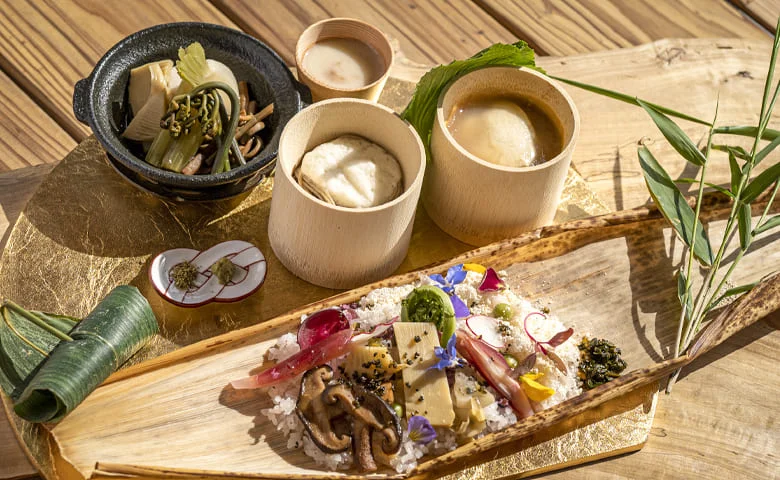
The most popular Shojin Ryori dish is the Yamano Megumi Chirashi-zushi (vinegared rice with assorted vegetables from the mountains). Chirashizushi deviates from the conventional use of sugar in its preparation by incorporating amazake, a sweet sake derived from black rice, along with red vinegar. This unique sushi dish consists of one half composed of rice and the other half featuring konjac, an underground plant predominantly found in Asia, known for its high fiber content.
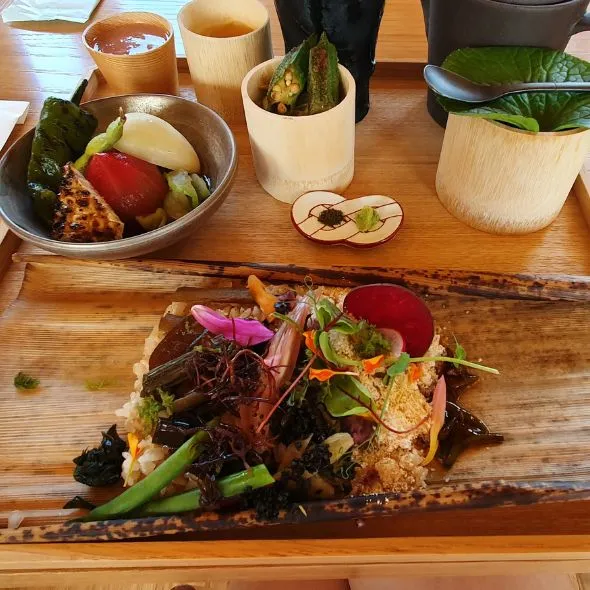
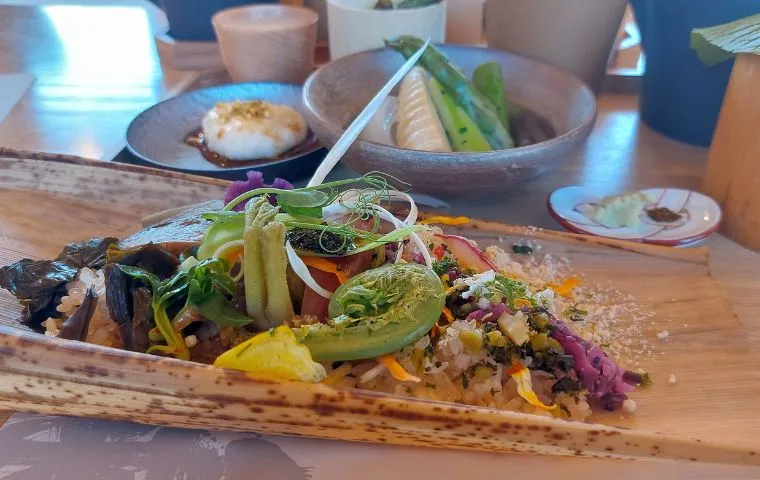
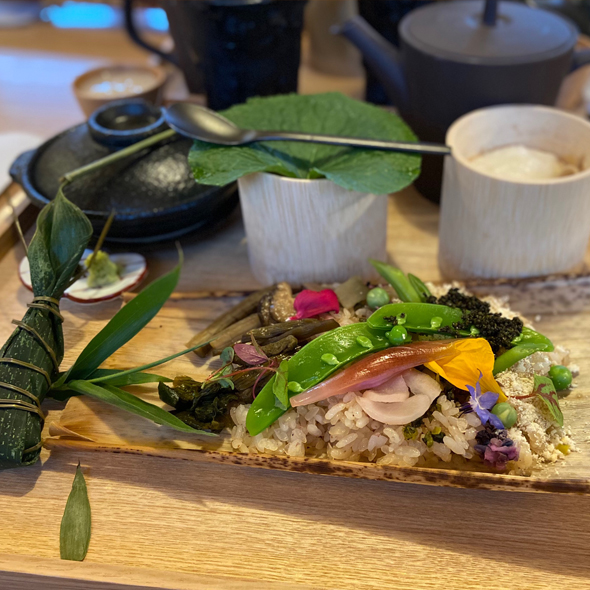
Yamakake Konjac Soba is another notable Shojin Ryori offering, featuring grated yam atop noodles crafted from konjac, showcasing a blend of textures and flavors. Porcini mushrooms are marinated in a broth infused with kombu to infuse the soup stock with a rich and savory taste. It is worth noting that Japanese cuisine places significant emphasis on the meticulous preparation of soup stock, recognizing it as a foundational element.
Shojin Ryori stands as a testament to the enduring importance of wellness and wellbeing in our society. Its emphasis on mindfulness, health, and the use of natural ingredients resonates with those seeking a holistic approach to their physical and mental health. Awaji Island, with its focus on health and wellbeing, serves as an ideal destination for those looking to explore the benefits of Shojin Ryori, and Zenbo Seinei offers an inviting sanctuary for those eager to embark on this transformative journey.
| Name | Zenbo Seinei |
|---|---|
| Address | 2594-5 Aza-Banaka, Kusumoto, Awaji City, Hyogo Pref. 656-2301 |
| Tel | 0799-70-9087 |
| Website | https://www.zenbo-seinei.com/en/ |
| Program Reservations | https://zenbo-seinei.urkt.in/direct/offices/587/courses |
| Hotel Reservation | https://www.booking.com/hotel/jp/shan-fang-jing-zhu-dan-lu-shi2.html |
| Operation Hours | Mon: 9:00 am~5:00 pm / Tues~Sun: 11:00 am~6:30 pm Closed: Varies depending on a month. Please inquire. |




